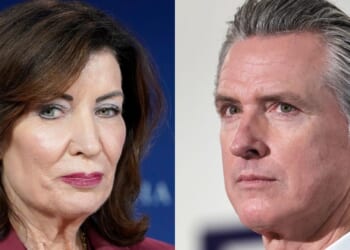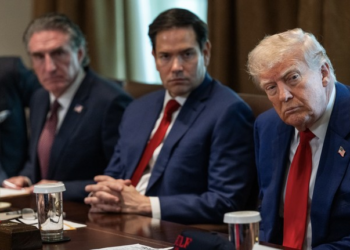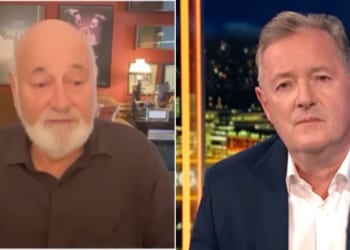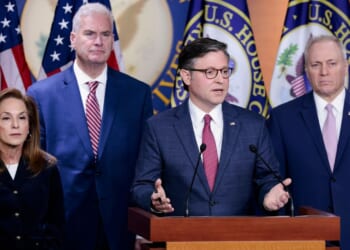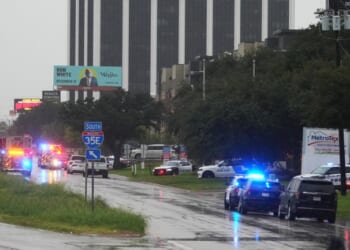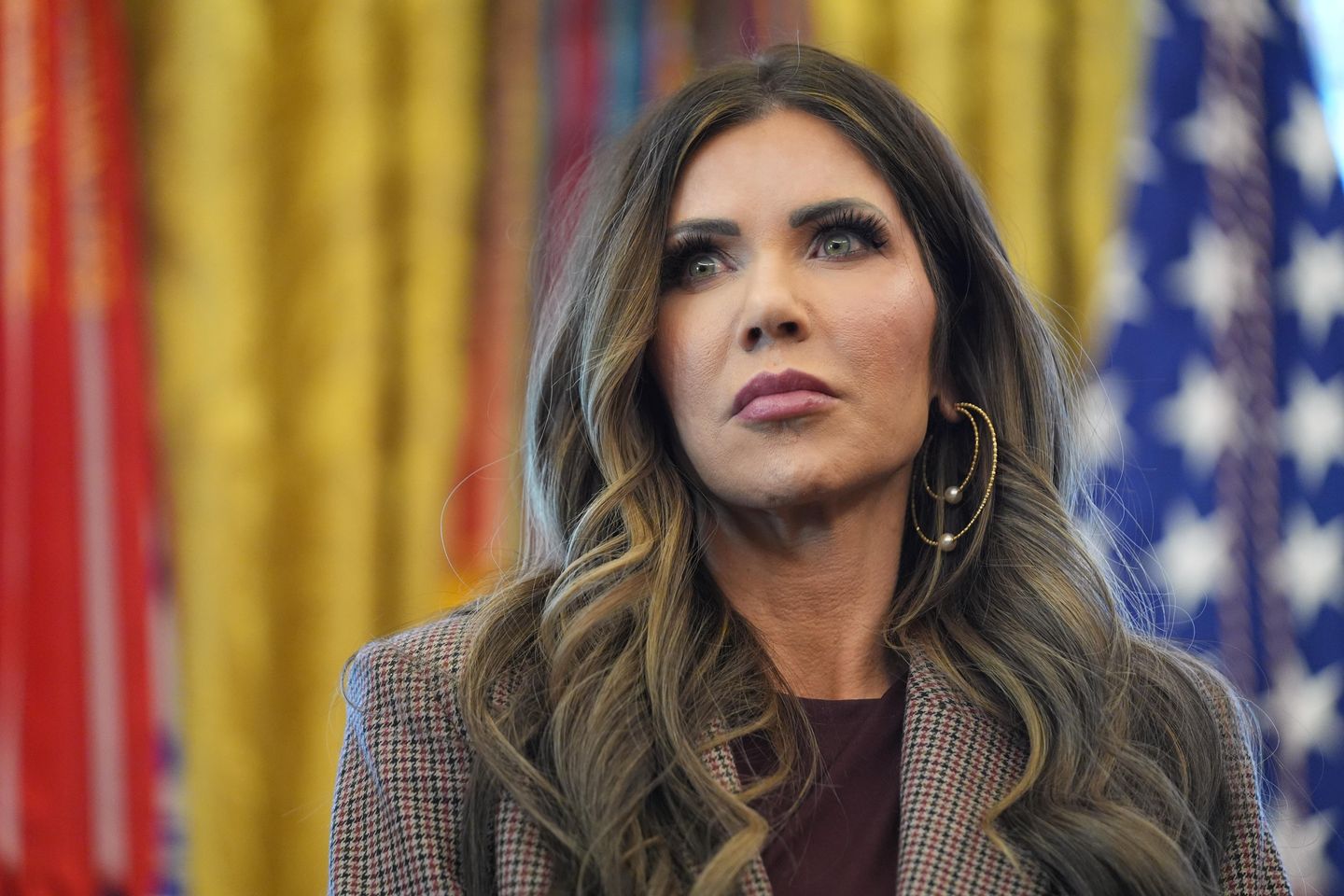
Homeland Security Secretary Kristi Noem made the final decision to deport Venezuelan gang suspects to El Salvador in March despite a judge’s order instructing the government to recall the airplanes, the Justice Department revealed Tuesday.
Government lawyers insisted Ms. Noem acted within the law and wasn’t intentionally trying to violate the recall order from U.S. District Judge James Boasberg.
The revelation came in a court filing to Judge Boasberg, who says his order was violated. He is pursuing a criminal contempt investigation and he demanded to know the government officials who were involved so he could see where the breakdown occurred.
The Justice Department listed five names it said were involved in the process.
They were Ms. Noem, Deputy Assistant Attorney General Drew Ensign, Deputy Attorney General Todd Blanche, then-Principal Associate Deputy Attorney General Emil Bove and DHS Acting General Counsel Joseph Mazzara.
It was Ms. Noem who gave the final go-ahead, after speaking with Mr. Mazzara, who had been in communication with the Justice Department officials.
“After receiving that legal advice, Secretary Noem directed that the AEA detainees who had been removed from the United States before the court’s order could be transferred to the custody of El Salvador,” Tiberius Davis, a Justice Department lawyer, said in the new filing Tuesday evening.
“That decision was lawful and was consistent with a reasonable interpretation of the court’s order,” Mr. Davis said.
At issue are hundreds of migrants deported on three planes on March 15. Most of them were ousted under the Alien Enemies Act, an 18th century law the administration is using as a shortcut to avoid the lengthy deportation procedures of regular immigration law.
Judge Boasberg had issued an oral order to ground the planes and to recall any that had left. He later issued a somewhat less stringent written order.
Mr. Davis said the legal advice given to Ms. Noem is “privileged.”
But the government has publicly defended its decision-making.
It says two of the planes were already in the air and thus the removals had already taken place, even if they were still in U.S. custody.
The third flight took off after the judge’s order, but the government has said all of the deportees on that plane were under regular immigration law and not subject to Judge Boasberg’s recall orders.
Judge Boasberg has rejected that reading of his orders and the law.
He has said he will pursue the criminal contempt investigation, and wants to gather testimony over the next weeks.
He ordered the government and the American Civil Liberties Union, which represents the migrants who brought the case, to provide lists of names who should give testimony to see where the contempt violation took place.
The ACLU’s list was far more expansive than the Justice Department’s.
It led with Erez Reuveni, a former Justice Department lawyer who was fired for disagreeing with the government’s handling of the flights. He has since turned whistleblower and has claimed government officials openly talked about defying a judge.
Also on the ACLU’s list are a number of current and former Justice Department lawyers. They include Mr. Ensign, August Flentje, James McHenry, Paul Perkins, Yaakov Roth and Emil Bove.
That latter name could be a serious problem, given that he is now Judge Bove, sitting on the 3rd U.S. Circuit Court of Appeals.
He was President Trump’s personal lawyer before being installed as principal deputy attorney general. Mr. Reuveni has fingered Judge Bove as the official who most clearly called for defying any judge that would try to halt AEA deportations.
The Justice Department, in its filing Tuesday evening, said if Judge Boasberg does pursue his contempt investigation the government believes the witnesses should be allowed to provide their evidence in written statements.
“No live testimony is warranted at this time,” Mr. Davis said.





